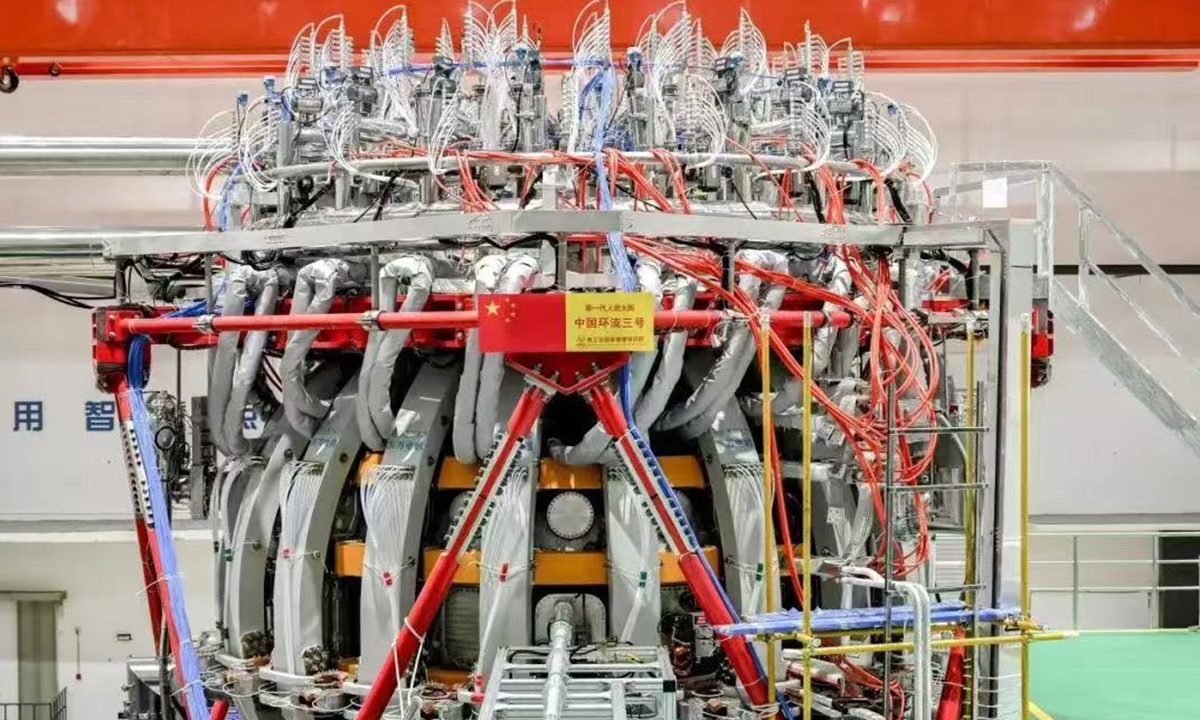China's latest artificial sun launches new round of physical experiments, incorporating ‘super eye’ for the first time

China's new-generation "artificial sun" Huanliu-3 (HL-3) tokamak (Photo: CNNC)
China's new-generation "artificial sun" Huanliu-3 (HL-3) tokamak has launched a fresh round of physical experiments, incorporating for the first time a digital twin system, which functions as a "super eye," Science and Technology Daily reported on Wednesday citing the developer, the China National Nuclear Corporation (CNNC).
The HL-3 is a large scientific device used for magnetic confinement nuclear fusion that has been independently designed and constructed in China. It is currently the largest and most advanced magnetic confinement tokamak device in the country, and has been hailed as a new-generation artificial sun.
A key aspect of the device's operation is the baking of the vacuum chamber, with the digital twin system acting as a "super eye" for this process, creating a digital model in virtual space that is identical to the physical entity, allowing for real-time and precise monitoring of the vacuum chamber baking process.
The digital twin system focuses on the temperature distribution within the vacuum chamber and creates an accurate digital model. By receiving data from heaters and physical temperature monitoring points, the system uses virtual sensor algorithms to output a complete temperature distribution in real time.
The application of the digital twin system marks significant progress in the digital key core technology of the "artificial sun", ensuring its safe and stable operation, and laying the foundation for the development of comprehensive intelligent control, according to the CNNC.
Researchers from the Chengdu-based Southwestern Institute of Physics (SWIP) affiliated with the CNNC that developed the digital twin system said they will continue to explore the potential of the technology with nuclear fusion research, further advancing artificial sun capabilities.
In December 2023, the CNNC announced the global opening of HL-3, inviting scientists worldwide to come to China and collaborate toward the shared goal of pursuing "artificial sun energy" after SWIP signed an agreement with the International Thermonuclear Experimental Reactor (ITER) and the development of future fusion reactors.
HL-3 since that time has become an important supporter of the construction and operation of ITER, the world's largest "artificial sun" project.
Photos
Related Stories
- China urges relevant countries to abolish "nuclear sharing" arrangement: spokesperson
- The MND: The US holds a "flashlight" only to check out on others but not herself on nuclear issues
- Chinese nuclear power giant holds exhibition blending science and art
- One year on, China’s ban on Japan’s seafood makes room for other countries
- Iran, European Council discuss resumption of nuclear talks
Copyright © 2024 People's Daily Online. All Rights Reserved.









